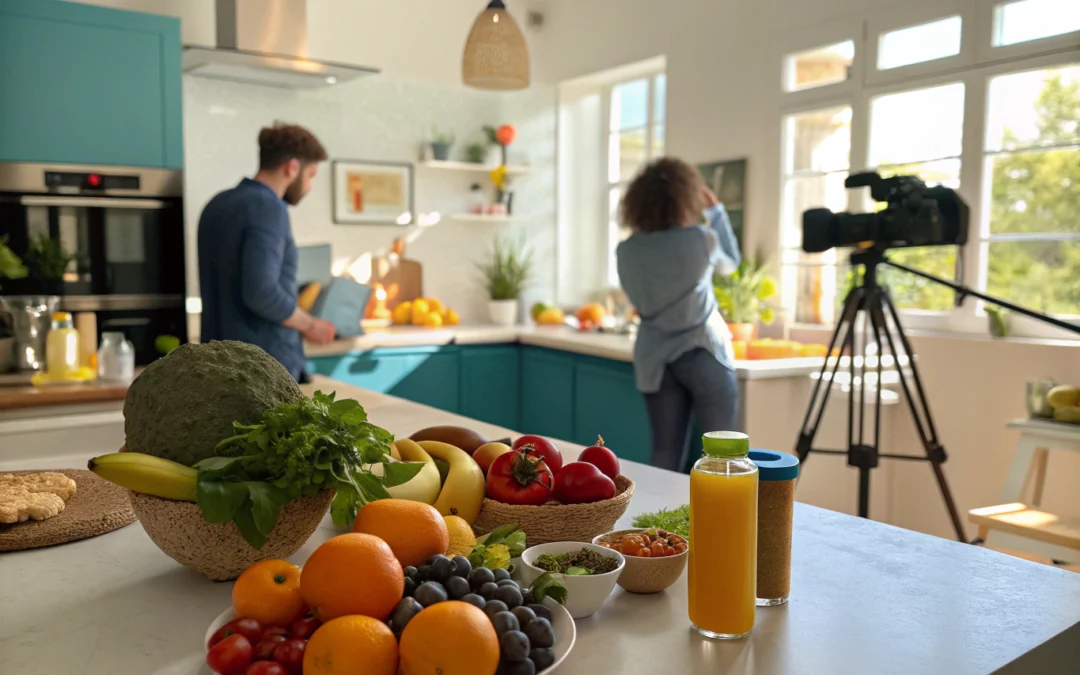Unlocking the Power of Nature: The Quest for the Best Natural Probiotics
Hey there, fellow explorers of the microscopic universe within us! Imagine embarking on a sci-fi adventure where your gut is the final frontier, teeming with tiny allies ready to battle invaders and keep your ship—your body—running smoothly. This isn’t a far-flung fantasy; it’s the everyday reality of probiotics. If you’ve ever wondered which natural probiotics truly deserve a spot in your health arsenal, you’re in the right place. I recently dove into an excellent resource that breaks down the landscape of natural probiotics, and you can check it out here: best naturals probiotics. Let me take you on a journey through the essentials, the science, and the stories behind these tiny, mighty microbes.
Why Probiotics? A Tale of Tiny Titans
Probiotics are like the unsung heroes in the saga of our well-being. These live microorganisms, primarily bacteria, are the good guys that help keep our gut ecosystem balanced. Picture your digestive system as a bustling metropolis. Probiotics are the city’s diligent caretakers, ensuring the streets are clean, traffic flows smoothly, and the bad actors don’t take over. When this balance tips, you might feel the effects—bloating, sluggish digestion, or even a weakened immune system.
Natural probiotics come with a bit of mystique. They’re not synthetic pills conjured in a lab but rather strains harvested from nature’s own pantry—fermented foods like yogurt, kimchi, sauerkraut, and kombucha. These foods are like ancient scrolls passed down through generations, carrying wisdom in the form of beneficial bacteria. But here’s the kicker: not all probiotics are created equal, and understanding which strains do what is where the real quest begins.
The Probiotic Players: Strains That Matter
Let’s geek out for a moment and talk about the microbial superheroes you want on your team:
- Lactobacillus: Think of this as the frontline defender. It’s often found in yogurt and fermented dairy. This strain is great at breaking down lactose and producing lactic acid, which helps inhibit harmful bacteria.
- Bifidobacterium: The peacekeeper in the gut community. It’s essential for maintaining the intestinal barrier and is frequently used to combat symptoms of irritable bowel syndrome (IBS).
- Saccharomyces boulardii: This is the rebel yeast probiotic that’s been shown to fight off certain diarrhea-causing pathogens. It’s a bit of a wild card but a powerful one.
Each strain has a unique role, and the best natural probiotics often combine several to create a balanced, effective mix. It’s like assembling a team of Avengers, each with special powers, to tackle different threats in your gut universe.
From Fermentation to Supplement: The Journey of Natural Probiotics
Here’s where the story gets even more interesting. Traditional fermented foods have been consumed for centuries, their probiotic benefits passed down in folklore and family recipes. But in today’s fast-paced world, not everyone has the time or taste for kimchi or kefir every day. Enter natural probiotic supplements—carefully crafted to harness the power of these beneficial microbes in a convenient form.
But caution is warranted. Just like any good sci-fi plot twist, not all supplements deliver on their promises. The key is transparency about the strains included, the CFU count (colony-forming units, which measure viable bacteria), and how the product is stored and handled. The best natural probiotics are those that maintain high potency until they reach your gut, ready to spring into action.
How to Choose Your Probiotic Sidekick
Picking the right probiotic is like selecting your spaceship for an interstellar mission. You want reliability, versatility, and the right specifications for your journey. Here are a few things to keep in mind:
- Diversity of Strains: Look for products with multiple strains. This diversity mirrors a healthy gut’s ecosystem and increases the chances of beneficial effects.
- CFU Count: More isn’t always better, but a decent CFU count (typically in the billions) ensures enough bacteria survive to colonize your gut.
- Delivery Method: Some probiotics are encapsulated to survive stomach acid, ensuring they reach the intestines intact.
- Natural Sources: Supplements derived from natural fermentation processes often have an edge in terms of bioavailability and efficacy.
The Final Frontier: Integrating Probiotics Into Your Life
Incorporating probiotics into your daily routine doesn’t have to be a chore or a cryptic experiment. Start small—maybe a spoonful of sauerkraut with your meal or a daily probiotic supplement sourced from natural ingredients. Listen to your body’s signals. Over time, you might notice improvements in digestion, energy levels, and even mood. Yes, your gut microbes have a say in how you feel!
Remember, this isn’t just about popping a pill and hoping for miracles. It’s about nurturing a complex ecosystem that’s as dynamic as any sci-fi universe. If you want to geek out further and explore the top picks in natural probiotics, definitely check out the detailed guide here: best naturals probiotics. It’s packed with insights and product recommendations to help you find your ideal microbial companions.
Wrapping Up Our Microbial Odyssey
So, whether you’re a sci-fi fanatic like me or simply someone looking to boost your health naturally, understanding probiotics is like unlocking a secret code to your body’s wellness. These microscopic allies have been quietly shaping our health for millennia, and with a little knowledge, we can harness their power to improve our digestive health and beyond.
Next time you pop open that jar of kimchi or reach for a probiotic supplement, imagine the tiny warriors inside, ready to embark on their mission deep within your gut. It’s a journey worth taking, and the best part? You’re the captain of this incredible voyage.
Checkout ProductScope AI’s Studio (and get 200 free studio credits)

